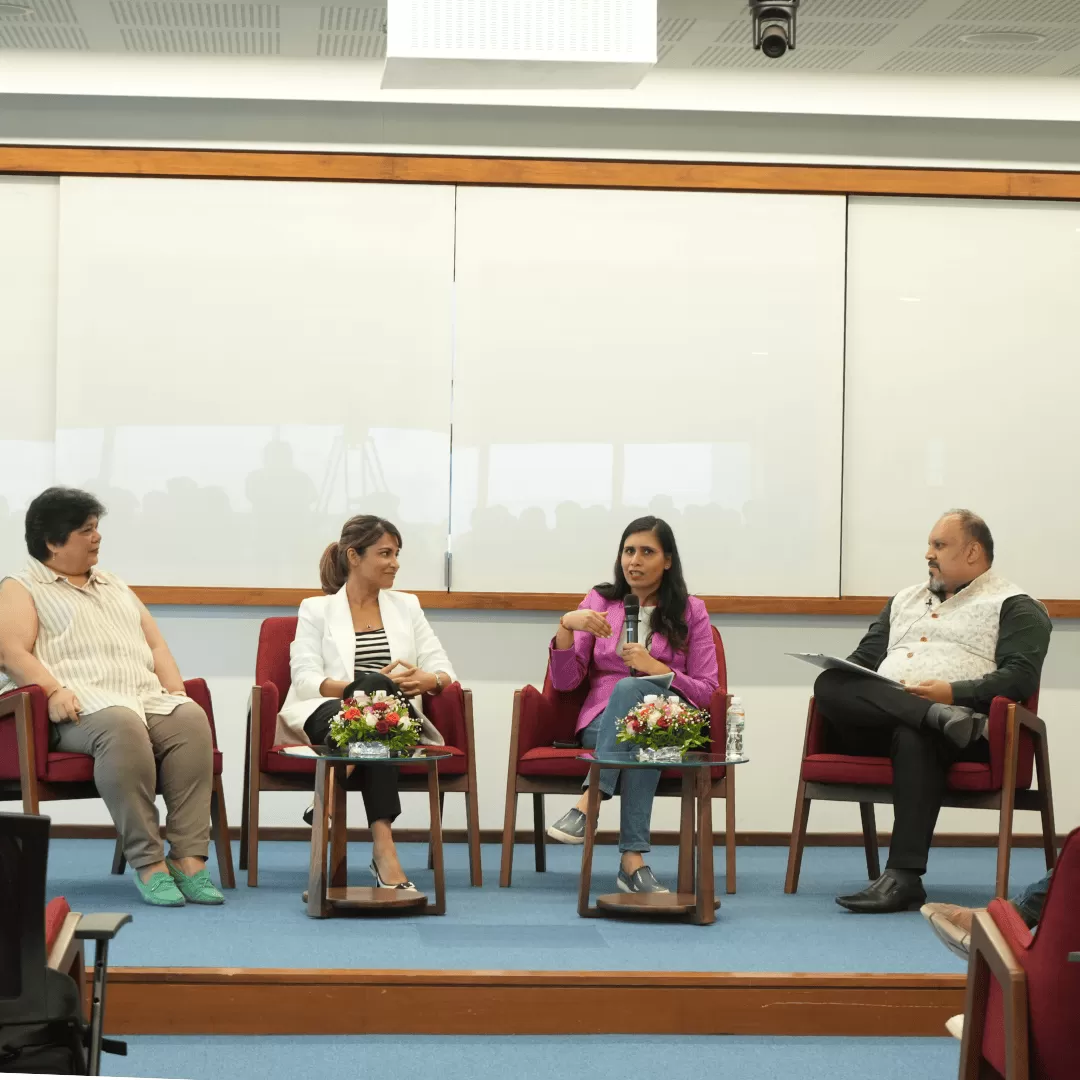Tech-Set-Go: Tech, Talent and Transformation in Indian Sports


“Technology is transforming the way sports is governed and played” - Anirudh Kalia, Professor of Sports Management, Jio Institute
From wearable sensors that monitor athlete performance to AI-powered video analysis and smart stadium experiences for fans, technology is transforming how sports are played, coached, and consumed. In eSports, tools like eye-tracking and cognitive training are enhancing player capabilities, while career opportunities expand in analytics, content creation, and game design. With the global sports tech market projected to exceed $40 billion by 2027, and India’s eSports industry growing rapidly, this convergence marks a new era—where data meets instinct and innovation drives performance.
Tech-Set-Go is a platform that explores this evolving intersection of sports and technology. This sports conclave at Jio Institute brought together industry leaders to discuss two critical aspects of India's sports ecosystem: technology's role in transforming Indian sports and the career transitions athletes face post-retirement. The event featured two comprehensive panels that explored how technology can democratize sports while addressing the educational and career needs of athletes.
Panel 1: Technology as the Lever for Transforming Indian Sports
The first panel, moderated by Mr. Anirudh Kalia, Associate Professor of Practice in Sports Management at Jio Institute, examined technology's transformative potential in Indian sports.
Mr. Viren Rasquinha, Managing Director & CEO of Olympic Gold Quest and former Captain of the Indian Hockey Team, shared his experience with early technology adoption in sports. He recalled the 2002 Hockey World Cup in Kuala Lumpur, where Australia's team used lightweight ice jackets to cool players during brief rolling substitutions, and how video analysis became standard for penalty corner strategies around 2004.
Mr. Prasanth Shanthakumaran, Partner & Head of Digital Engineering and Quality & Sports Sector Leader at KPMG, provided industry perspective on India's $30 billion sports market, growing at 15% annually. A leader in tech and engineering in sports, he emphasized that sports technology, valued at $2.7-3 billion, is expanding at an even faster pace across four key areas: management and fan engagement, core sports technology like Hawk-Eye and VAR, sports science applications, and data analytics.
Mr. Sidhhant Agarwal, Founder and CEO of SportVot, addressed the democratization aspect of sports technology. The entrepreneurial ace noted that while technology remains a significant cost for sports bodies, increasing accessibility and affordability are making it more viable for widespread adoption. SportVot's platform, covering 400,000 matches across five countries, exemplifies how technology can extend sports reach to previously underserved areas.
The learned panel identified key challenges, including India's low sports participation rate of only 5% compared to the USA's 20%, and the need for better infrastructure and coaching systems. Mr. Viren emphasized that federations' technology adoption priorities would rate the lowest, since fundamental ecosystem elements like infrastructure, scouting, and professional support staff need strengthening first.
Panel 2: From Sports Field to Future Career – Is Tech the Answer?
The second panel, featuring a shooting Olympian, a veteran legal expert in the sports business and a marquee sports & tournament development chief, was moderated by Mr. Sanand Mitra, Co-Founder and Managing Director of SporTech Innovation Lab, and Sports Management faculty at Jio Institute. This distinguished panel focused on athletes' post-retirement career transitions and the role of technology in facilitating these changes.
Ms. Heena Sidhu, two-time Olympian and former World No. 1 in Pistol Shooting, highlighted infrastructure challenges, particularly for rural athletes. The Olympian noted that sports requiring minimal equipment like wrestling, boxing, and weightlifting gain more traction in rural areas due to infrastructure limitations, while urban areas struggle with the shortage of quality coaches.
Ms. Preeti Pariat Mehta, Tournament Director at Reliance Foundation Youth Sports, discussed how the COVID-19 pandemic accelerated digital adoption in sports education. Drawing on decades of experience in grassroots and commercial sports development, Ms. Preeti related an anecdote: When physical education teachers were among the first to be removed from schools during lockdowns, Reliance Foundation successfully transitioned to online education for coaches, teachers, athletes, and referees.
Ms. Aarushi Jain, Partner TMT and Head of Media, Education & Gaming at Cyril Amarchand Mangaldas, emphasized the resilience of sports personalities and the expanding opportunities within the sports ecosystem. She highlighted how the National Education Policy's emphasis on holistic education, including sports, creates new avenues for career development, post-sports.
The panel discussed the emergence of new career pathways enabled by technology and digital platforms. Athletes can now pursue sports management courses online, work as implementers, videographers, entrepreneurs, or even specialize in sports stadium architecture. The discussion also explored the concept of an Indian Sports Service, similar to the Indian Administrative Service, specifically designed for sports administration. The idea drew positive responses from the entire panel, while highlighting the need for private intervention to take sports to the next level in India.
Key Takeaways
The conclave revealed that while technology offers tremendous potential for transforming Indian sports, success requires coordinated efforts from government, private sector, and citizens. The integration of technology must be accompanied by fundamental improvements in infrastructure, coaching quality, and athlete education. For career transitions, technology serves as an enabler rather than a complete solution, requiring comprehensive ecosystem development to ensure sustainable growth in India's sports sector.
Through insights from former athletes, Olympians, seasoned sports administrators and entrepreneurs, the event demonstrated the industry's commitment to recognizing current challenges while building pathways for future growth, emphasizing that technology's true value lies in making sports more accessible, data-driven, and professionally managed across all levels of participation.
